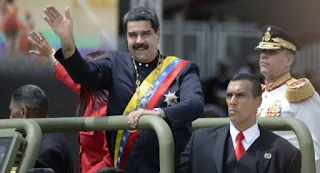Sheila Michaels, an American feminist who brought the honorific "Ms" into mainstream use, has died aged 78.
Ms Michaels did not invent the term, but is credited with rescuing it from obscurity after she saw it used in an address, thinking it was a typo.
"Ms" did not convey a woman's marital status, unlike the traditional options "Mrs" or "Miss".
"I had never seen it before: It was kind of arcane knowledge," she said.
Speaking to the New York Times in an interview last year for her own obituary, she said the honorific resonated with her, both as a feminist and as the child of unmarried parents.
"[I] was looking for a title for a woman who did not 'belong' to a man. There was no place for me," she told The Guardian newspaper in 2007.
"I didn't belong to my father and I didn't want to belong to a husband - someone who could tell me what to do."
Born in St Louis, Missouri, Ms Michaels spent some of her childhood in New York City. She was a lifelong feminist activist, biblical scholar, and collected oral histories of the civil rights movement later in life.
In her professional life, she worked as a ghostwriter, editor, and even ran a Japanese restaurant - but her obituary in the St. Louis Post-Dispatch notes her favourite job was being a New York City taxi driver.
What's in a name?
The term Ms dates back to at least 1901, but its obscurity meant that Ms Michaels first thought it was a typo, intended to be Mrs, on a housemate's delivery of a Marxist magazine in the early 1960s.
Years later, she brought it casually, during a lull in conversation on broadcast radio - where it was heard by others, and began to attract attention.
That broadcast would lead the first editors of Ms Magazine to adopt the honorific as its title in 1972 "after prompting from Sheila Michaels, who had been pushing the women's movement to adopt its usage," the magazine wrote last month.
"'Ms' is how you address a woman as a whole person. In a culture where women were identified on the basis of their marital status... [it was a] way to define ourselves as individuals, not subordinates or partners."
And while the new honorific was in the public sphere and a subject of debate, it was not adopted by the New York Times until 1984 - seen as a landmark for its usage by a traditional stylistic conservative.
Now, the newspaper has published an extensive obituary based on interviews with Ms Michaels herself.
"Ms Michaels leaves a legacy both minute and momentous: two consonants and a small dot - three characters that forever changed English discourse," the Times wrote.
Advice from the BBC's style editors is simple: "Try to find out what the person herself uses, and stick to that."
Do you use the honorific Ms? When and why did you adopt it? If you don't use it, which one do you use and why? Email haveyoursay@bbc.co.uk.
Please include a contact number if you are willing to speak to a BBC journalist. You can also contact us in the following ways:
BBC NEWS












